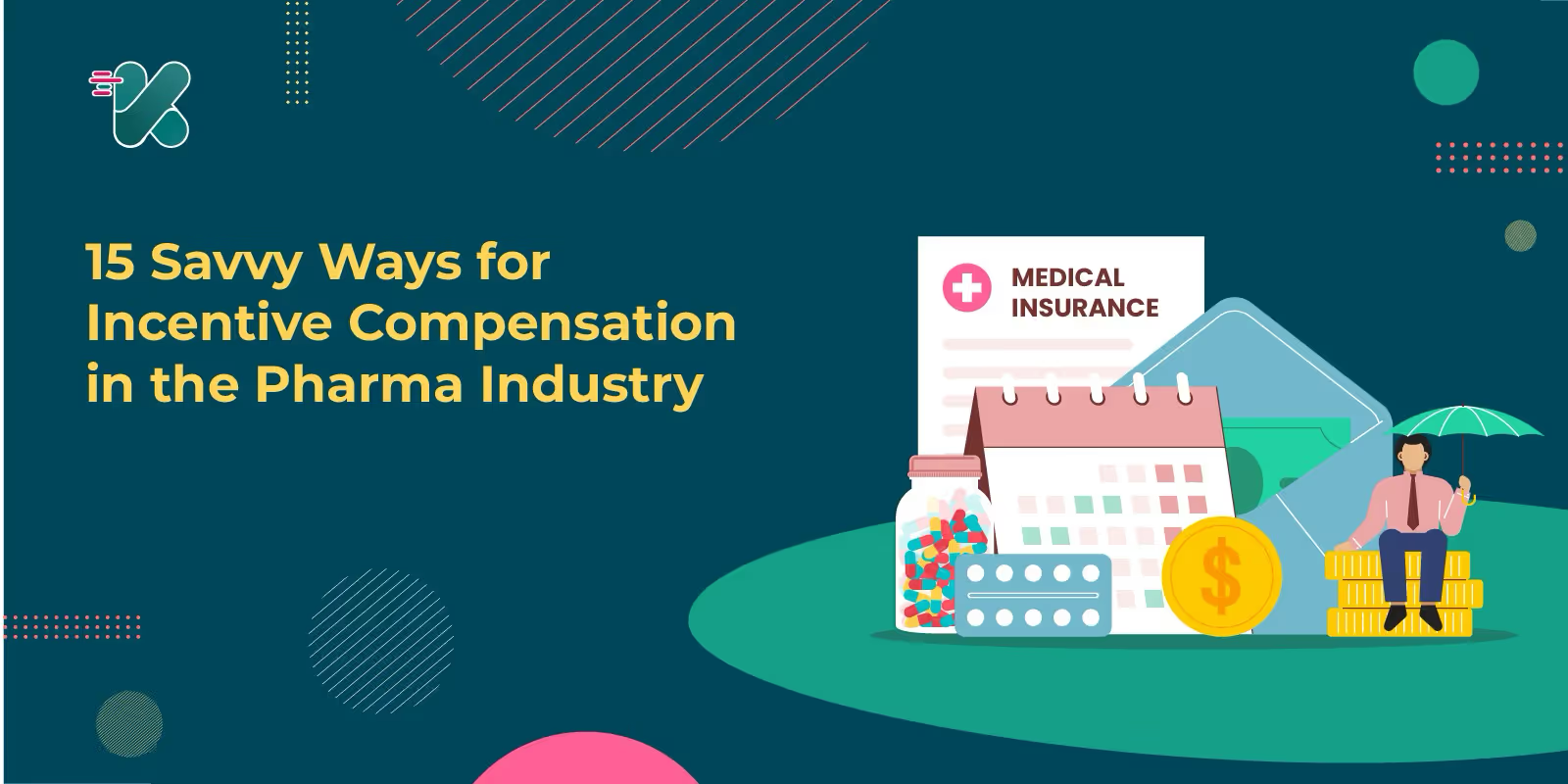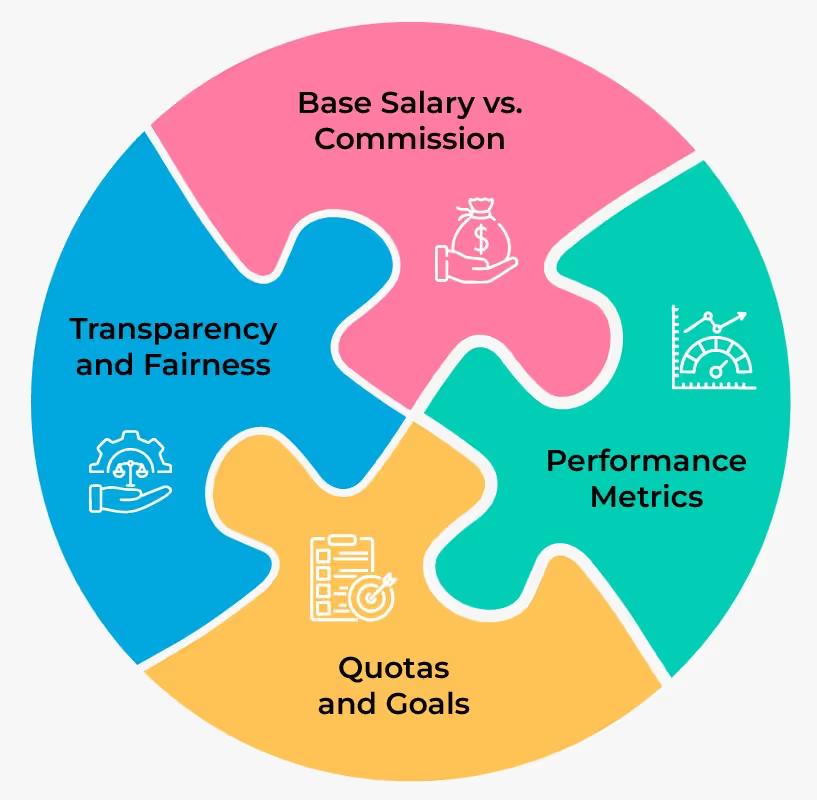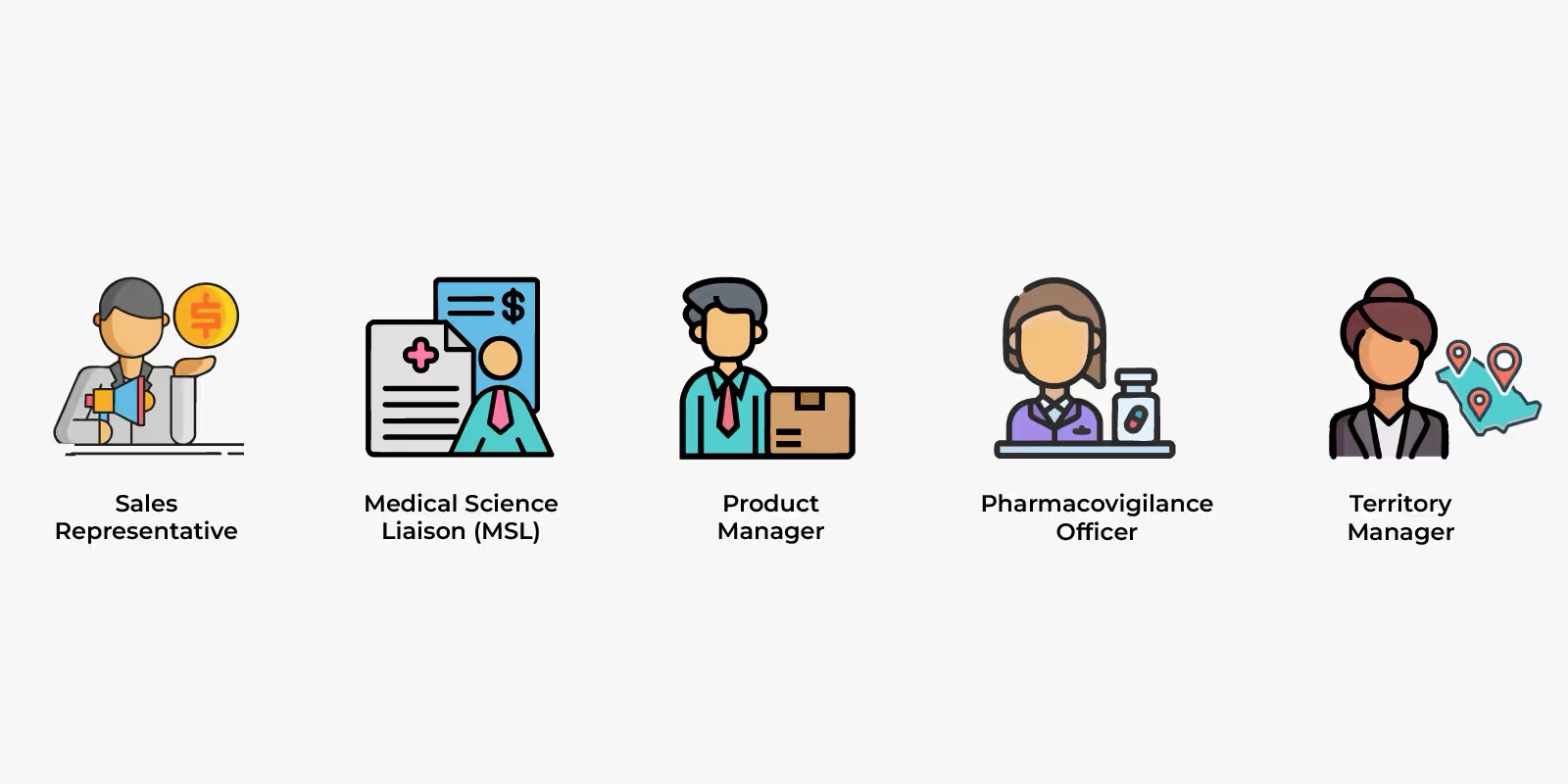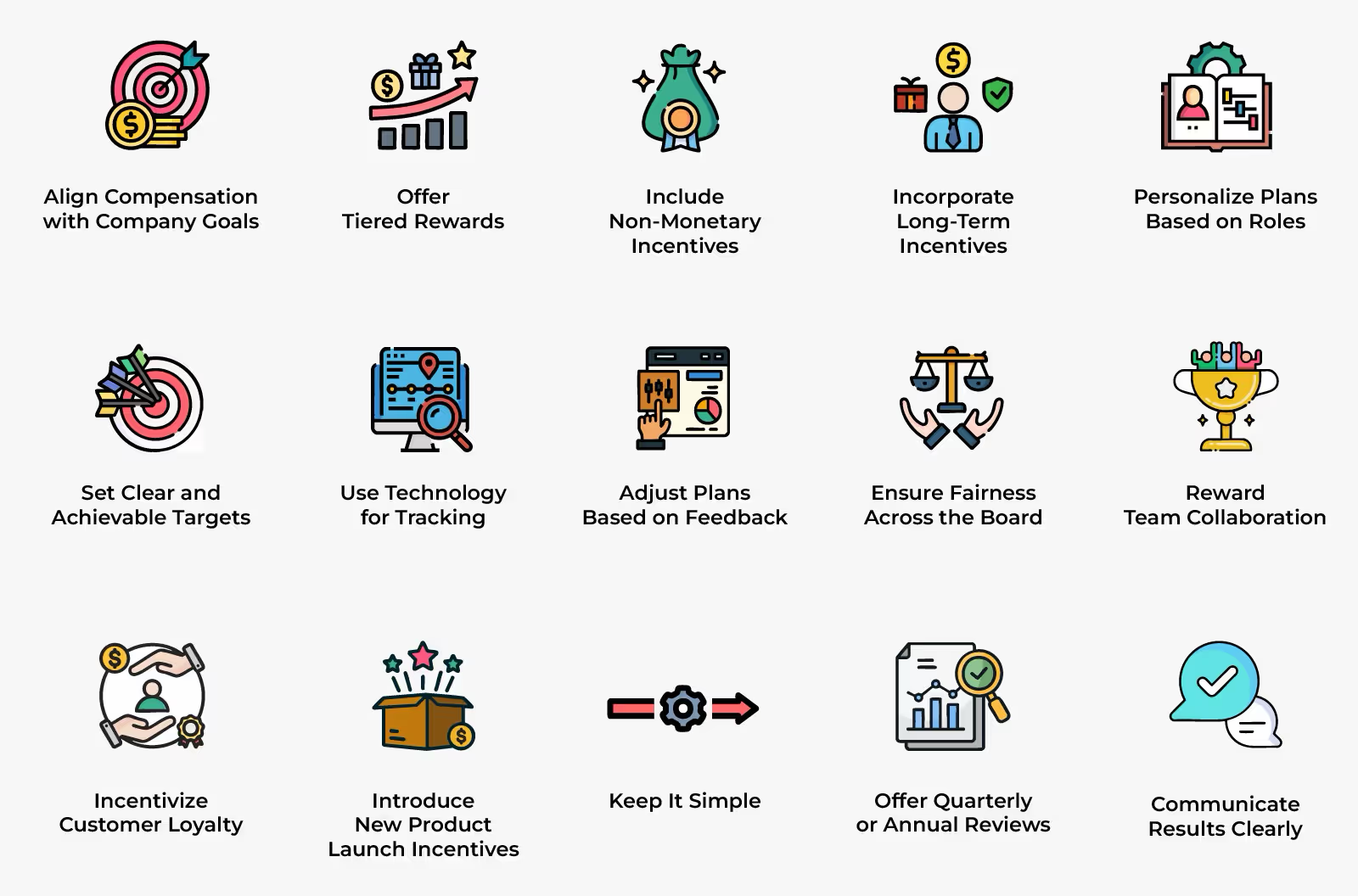
Blog
Top Tips for Pharma Incentive Compensation| Strategies & Insights
December 26, 2024


Key Insights
Sales in any industry can be tough, but in the pharma industry? The challenges are on another level. Pharma sales reps aren’t just selling products, they're juggling a lot more. They have to navigate complex regulations, build strong relationships with healthcare professionals, and ensure their product is recognized as a life-changing solution.
Now, keeping that kind of sales force motivated? That’s a challenge in itself. A thoughtful incentive program can be the difference between a team that’s just coasting and one that’s crushing targets, week after week.
Let’s explore how you can create a winning formula that keeps your pharmaceutical sales team engaged, inspired, and always aiming higher.
The Key Components of an Effective Incentive Plan

1. Base Salary vs. Commission
Let’s talk money. Every sales team lives for the thrill of the paycheck, but what’s the perfect balance? A strong base salary provides stability, it’s the safety net your team can rely on, especially in an industry where sales cycles can stretch for months. Then there’s commission, the ultimate motivator. It’s the carrot on the stick that pushes reps to go the extra mile. A mix of a competitive base salary with performance-based commissions often works best.
2. Performance Metrics
What gets measured gets done, simple as that. But here’s the catch: not all metrics are created equal. In the pharma world, you can’t just measure sales volume and call it a day. You need to track behavioral goals like building strong relationships, educating healthcare providers, and adhering to compliance standards.
3. Quotas and Goals
Set SMART goals (Specific, Measurable, Achievable, Relevant, Time-bound). For pharma sales reps, this might mean setting realistic quotas based on product demand, market trends, and individual territories. And don’t forget to celebrate small wins along the way!
4. Transparency and Fairness
Make your incentive structure crystal clear, your team should understand exactly how they earn their rewards.
Fairness is just as crucial. Ensure everyone has a level playing field. For example, if one rep has a territory packed with high-prescribing doctors and another has a tougher market, their targets should reflect those differences. A transparent, fair system builds trust, and trust is the glue that holds your team together.
Key Sales Roles in Pharmaceutical Sales

1. Sales Representative
At the heart of any pharma sales operation, Sales Representatives are the ones actively selling the product to healthcare professionals.
2. Product Manager
A Product Manager in the pharma industry is responsible for the strategy, development, and lifecycle of a product. From launch to post-market, they ensure the product meets the market’s needs and align sales strategies with overall business goals.
3. Territory Manager
A Territory Manager oversees a specific geographic region and is responsible for meeting sales targets, managing a team of sales reps, and developing strategies to grow market share within that area.l
Curious about the best practices and strategies for pharmaceutical sales compensation? Explore our in-depth blog now!
15 Solid Incentive Compensation Strategies for the Pharma Industry

Whether you're aiming to boost sales, improve morale, or foster long-term growth, these tips will give you the tools you need to keep your team on track and motivated.
1. Align Compensation with Company Goals
At the end of the day, your incentive plan should be like a GPS, guiding your sales reps in the right direction. Aligning their compensation with the company’s overall goals ensures that everyone’s efforts are in sync.
2. Offer Tiered Rewards
One size doesn’t fit all in the world of sales incentives. That’s where tiered rewards come in. Instead of offering one reward for hitting a set target, offer increasing rewards as they hit higher milestones. For example, hitting 100% of the target might earn a bonus, but hitting 150% could unlock a luxury experience or a higher cash reward. This not only motivates your team to push beyond the minimum but also fuels a sense of healthy competition.
3. Include Non-Monetary Incentives
Sometimes, it’s not all about the cash. Non-monetary incentives, like extra vacation days, recognition at team meetings, or even personalized gifts, can be just as powerful. These perks add a personal touch, showing your team that you value their hard work in more ways than just financially. A personalized thank-you note or an extra day off can go a long way in boosting morale.
4. Incorporate Long-Term Incentives
It’s easy to get caught up in the short-term wins, but don’t forget to plan for the long haul. Long-term incentives like stock options or retirement contributions help keep your team loyal and committed. These rewards tie their success to the company’s future, encouraging them to think beyond this quarter and focus on sustained performance.

5. Personalize Plans Based on Roles
One of the biggest mistakes you can make is treating all your sales reps the same. Every role is different, and your incentive plan should reflect that. A field sales rep will have different metrics and goals than someone in a key account management role. Personalizing the plan ensures that each individual has clear targets that align with their responsibilities and strengths.
6. Set Clear and Achievable Targets
No one wants to chase a moving target. Setting clear and achievable targets gives your sales reps something concrete to aim for. These targets should be based on realistic expectations, while still challenging enough to drive results. If reps feel like the goal is unattainable, motivation can plummet. So, get that balance just right.
7. Use Technology for Tracking
Tracking progress is key to staying on target. Invest in a solid technology platform to help monitor progress in real-time. Whether it's through CRM systems or specialized sales tracking tools, having a way to see how close they are to hitting their goals helps your reps stay motivated and allows for quick adjustments if needed.
8. Adjust Plans Based on Feedback
Your team knows best. That’s why you should regularly seek feedback and adjust your incentive plan as needed. Maybe the targets are too ambitious, or perhaps the rewards could be more enticing. Gathering input from your sales reps ensures that your incentive plan remains relevant and effective, and it shows them that their opinions matter.
9. Ensure Fairness Across the Board
An incentive plan that feels unfair can quickly lead to frustration. Make sure that your plan is transparent and treat everyone equitably. Everyone should know exactly how they earn their rewards, and the criteria should be the same for all, regardless of tenure or territory. Fairness builds trust, and trust keeps your team engaged.
10. Reward Team Collaboration
Sales might seem like an individual sport, but pharma reps often succeed because they work well together. Reward team collaboration by setting group goals or offering team-based incentives. This encourages a sense of community and shared purpose, rather than everyone just looking out for their success.
11. Incentivize Customer Loyalty
In pharma, sales don’t stop once the product is sold. Encouraging your reps to focus on customer loyalty is a game-changer. Offer incentives for customer retention, repeat business, or even positive reviews from healthcare professionals. Building long-term relationships is as important as closing new deals, and rewarding this behavior can drive long-term success.
12. Introduce New Product Launch Incentives
New products are the lifeblood of any pharma company, and your reps play a big role in making them a success. Offer special incentives for reps who drive the adoption of new drugs or products. Whether it’s a special bonus for early adoption or rewards for educating healthcare professionals, new product incentives can drive excitement and urgency.
13. Keep It Simple
The best incentive plans are easy to understand. Keep the structure straightforward, so your reps know exactly what they need to do to earn rewards. A complicated system with too many variables can lead to confusion and frustration. Simplicity fosters clarity and helps your team stay focused on what matters most.
14. Offer Quarterly or Annual Reviews
Sometimes, your reps need a little course correction. Offering quarterly or annual reviews gives them the chance to reflect on their progress, recalibrate, and reset their goals. These reviews provide a structured opportunity to recognize achievements, set new targets, and reinforce what’s working in the incentive plan.
15. Communicate Results Clearly
No one likes surprises when it comes to their pay. Be transparent about how close they are to hitting targets, what’s working, and where they might need to improve. Clear, consistent communication about results helps keep everyone on track and ensures no one’s left wondering how they’re performing.
Essential Pharma Incentive Strategies for 2025
✅Sales Performance Management Software
Take your sales strategy to the next level with Kennect. It empowers you with real-time insights and smart tools to keep your team focused, motivated, and performing at their peak, all without the guesswork.
✅Incentive Compensation Management Software
Say goodbye to tedious calculations and hello to effortless incentives. Kennect’s software transforms how you manage sales compensation, automating every step for precision and efficiency while keeping your team driven to succeed.
Simplify compliance with our powerful tools! Effortlessly follow audit trails, meet industry regulations, and ensure your sales commission accounting is on point. With complete transparency, you can reduce legal risks and stay fully aligned with all legal requirements
Closing Remarks
Companies utilizing incentive programs reported a 79% success rate in achieving their established goals when the correct reward was offered.
No matter the industry, sales incentives hold universal value. When incentives are thoughtfully designed, they transform ordinary efforts into extraordinary outcomes, creating a culture where everyone wins. Whether you’re motivating pharma sales reps or teams in other sectors, the power of a well-structured incentive program remains undeniable. Keep it strategic, keep it fair, and watch your sales soar!
ReKennect : Stay ahead of the curve!
Subscribe to our bi-weekly newsletter packed with latest trends and insights on incentives.
Thank you! Your submission has been received!
Oops! Something went wrong while submitting the form.
Your data is in safe hands. Check out our Privacy policy for more info











